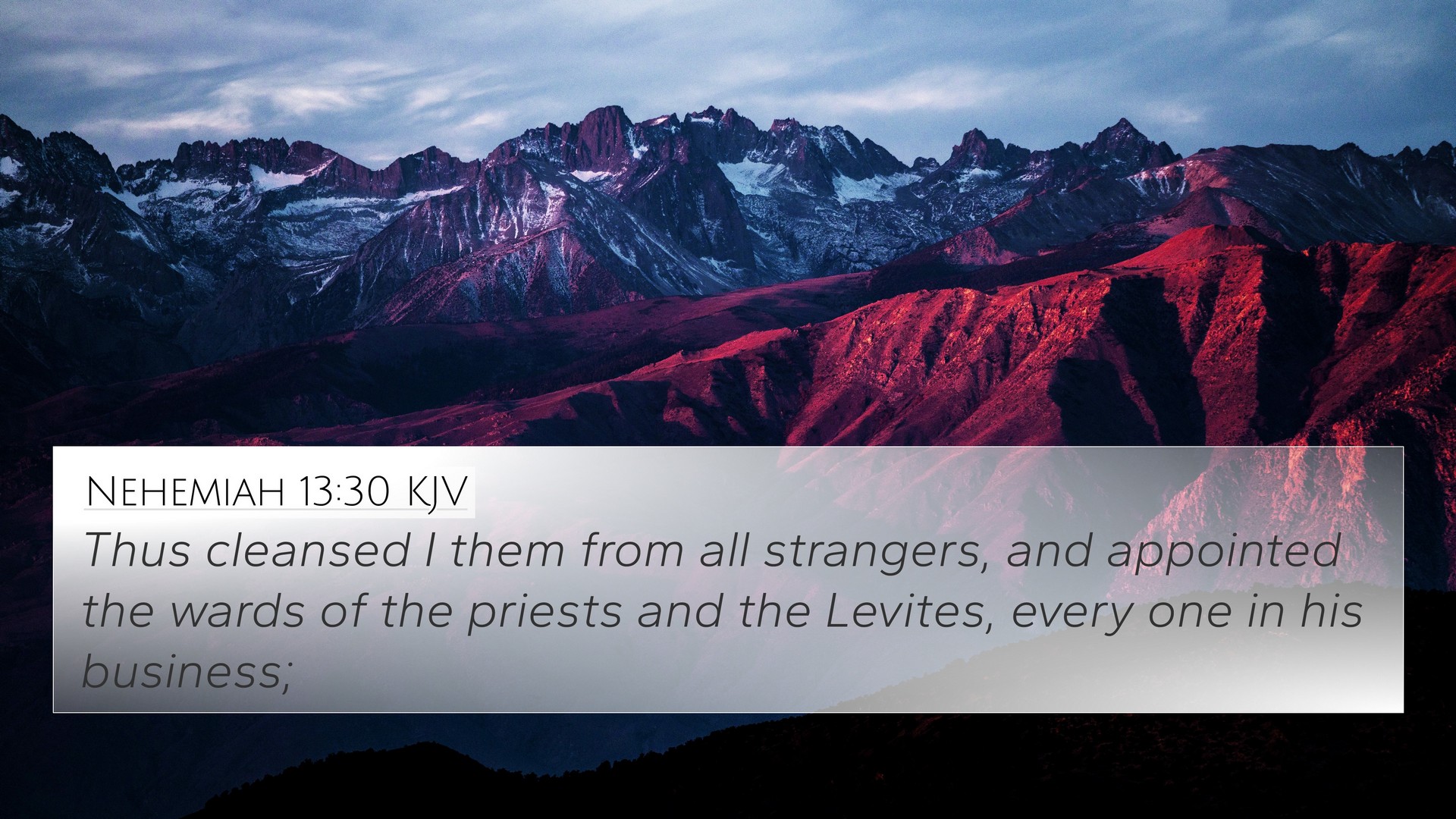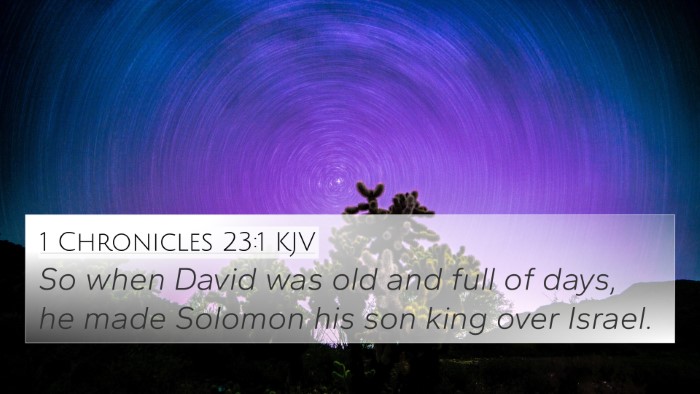Understanding Nehemiah 13:30
Nehemiah 13:30 states: "Thus I cleansed them from all foreigners, and appointed the wards of the priests and the Levites, every one in his business." This verse occurs in a context where Nehemiah is reforming the practices of the people after returning to Jerusalem. He focuses on purity and the proper conduct of worship as outlined in the Mosaic Law.
Summary and Insights
The meaning of this verse is centered on the theme of holiness and order in worship. Nehemiah takes decisive action to restore the sanctity of the priestly roles and to maintain the purity of Israel by removing foreign influences. This not only underscores the importance of separation from outside practices that could lead to apostasy but also emphasizes the responsibility of leadership in the community.
Key Themes
- Holiness: The call for purity in worship and the importance of adhering to God's laws.
- Leadership: Nehemiah demonstrates the necessity of strong leadership in directing the spiritual practices of the community.
- Restoration: The act of cleansing shows a return to proper worship practices following a time of corruption and neglect.
- Community Responsibility: The collective involvement of the people in maintaining the holiness of their practices.
Commentary Insights
Using insights from public domain commentaries, we can delve deeper into the implications of Nehemiah 13:30:
- Matthew Henry: Emphasizes the need for spiritual cleanliness within the church community, pointing out that foreign influences dilute true worship and faith.
- Albert Barnes: Highlights the role of the leaders, specifically the priests and Levites, in ensuring that worship is conducted appropriately and biblically, citing the necessity of their appointment to specific tasks.
- Adam Clarke: Focuses on the practical steps Nehemiah took to purify worship and trim away that which was foreign, illustrating the active role individuals must play in their spiritual lives.
Connections to Other Bible Verses
This verse can be linked to several other passages that resonate with its themes:
- Ezra 6:20: Talks about the purification of the priests before offering sacrifices.
- Deuteronomy 7:3: Advises against intermarriage with foreign nations to prevent leading Israel astray.
- Malachi 2:7-9: Discusses the role of priests and the importance of their faithfulness to God.
- 1 Peter 1:16: Calls believers to be holy as God is holy, reflecting the core message of purity.
- Hebrews 12:14: Encourages believers to strive for holiness without which no one will see the Lord.
- 2 Corinthians 6:14: Warns against being unequally yoked with unbelievers which resonates with Nehemiah's concerns.
- James 1:27: Highlights the importance of keeping oneself unstained from the world, mirroring Nehemiah's desire for purity.
- Psalm 24:3-4: Discusses who may ascend the hill of the Lord, emphasizing the need for clean hands and a pure heart.
Thematic Bible Verse Connections
Nehemiah 13:30 interlinks with several themes across the Bible:
- Theme of Community Purity: Reflects in passages such as Joshua 7 regarding the consequences of sin in the camp.
- Theme of Christian Leadership: Paralleled in 1 Timothy 3 where the qualifications for church leaders are laid out.
- Theme of Repentance and Renewal: Echoed in Psalm 51, where David seeks renewal of spirit and cleanliness before God.
Conclusion
Nehemiah 13:30 serves as a vital reminder of the importance of spiritual integrity within worship, the role of leaders in guiding their communities, and the biblical call to holiness. By closely examining this verse alongside other passages, believers can appreciate the overarching scriptural dialogue about maintaining purity in their relationship with God. Cross-referencing verses helps to deepen the understanding of this topic and reinforces the interconnectedness of scripture.





